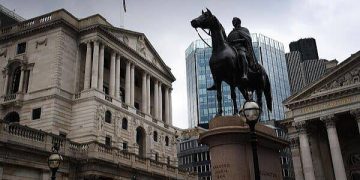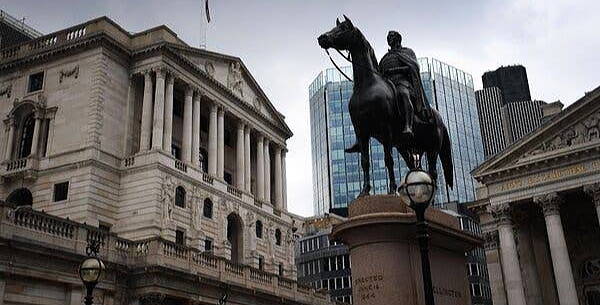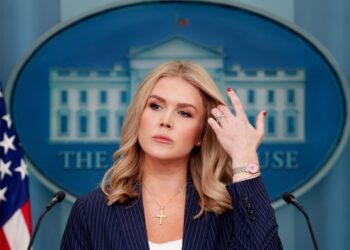By John Ikani
The Bank of England (BoE) raised interest rates by three quarters of a percentage point on Thursday, the biggest hike in 33 years, as it tries to contain soaring inflation.
The BoE increased Bank Rate to 3% from 2.25% even as it said Britain’s economy might not grow for another two years, a slump longer than during the 2008-09 financial crisis.
The hike which is the BoE’s eight in a row, takes borrowing costs to their highest level since 2008 and marks the biggest interest rate rise since 1989.
On Wednesday, the US Federal Reserve also hiked rates by 75 basis points but signalled U.S. borrowing costs were likely to rise more than anticipated to crush inflation.
That contrasted with the BoE’s message on Thursday.
“We can’t make promises about future interest rates but based on where we stand today, we think Bank Rate will have to go up by less than currently priced in financial markets,” Governor Andrew Bailey said, in an unusually blunt message.
The BoE said it now expected inflation will hit a 40-year high of around 11% during the current quarter. But it also thinks the economy has entered a recession that could mean it contracts in both 2023 and 2024 and shrinks by 2.9% in total.
Unemployment would rise steadily to 6.4% by late 2025, nearly doubling from a current 3.5%, its lowest rate since the mid-1970s.
The British pound fell sharply after the announcement, dropping 2% against the US dollar to $1.117. It also dropped 1.2% against the euro.
Since the Bank of England’s last meeting, UK financial markets have been through a period of unprecedented turbulence and the outlook for the economy has deteriorated.
Former Prime Minister Liz Truss’ “mini” budget in late September — with its promise of £45 billion ($51.6 billion) of unfunded tax cuts — crashed the pound, collapsed bond prices, sparked mayhem in mortgage markets and prompted an emergency intervention by the Bank of England to rescue strained pension funds.
While Truss’ tax-cutting plans have since largely been ditched, restoring calm to markets and easing expectations for inflation in the medium term, rising food and energy costs are keeping prices high. The annual rate of inflation climbed to 10.1% in September, from 9.9% in August, returning to the 40-year high hit in July.




































